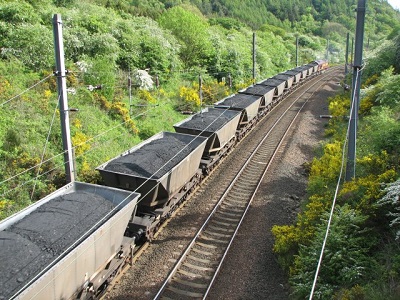

Image By: Canva
The original article can be found here.
South Africa’s state-owned rail company needs R12.2 billion and five years to upgrade equipment to revive performance of its main export coal line, according to an internal report.
Coal shipments plunged to a more than three-decade low of 48 million tonnes last year because of inefficiencies at Transnet, which blamed a lack of locomotives and spare parts for its woes. According to a final executive summary report seen by Bloomberg, the two other major factors limiting the amount of fuel shipped to the coast for export are infrastructure faults and issues with signalling systems.
The “conservative” export coal forecast for the financial year is 54 million tonnes, the company said in a response to questions, confirming the report. “All remedial actions are aimed at achieving a 78-million-tonne tempo,” it said.
Do-nothing approach
A “do-nothing” approach could result in volumes transported on the line that runs from inland mines to Richards Bay Coal Terminal, the largest facility of its kind on the continent, dropping to as low as 38 million tonnes for the current financial year, the document dated July 12 and co-authored by logistics companies Thelo Group and Deutsche Bahn AG showed.
Network faults that cause disruptions and manual authorisations resulting in delays result in greater losses than the unavailability of rolling stock, according to the report. Theft and vandalism of equipment and signals have also contributed to losses.

Transnet said measures to improve the line are already underway and the company recently finished a 10-day maintenance operation that “managed to address some of the key network constraints.” The unavailability of China’s state-owned CRRC Corp. locomotives, which is not covered by the report, “continues to be the biggest hindrance to performance,” the company said.
DPE failure
South Africa’s erstwhile Department of Public Enterprises Minister Pravin Gordhan last year failed to resolve an impasse with China that’s held up delivery of the locomotives and parts.
According to an external spokeswoman, Thelo declined to comment “for professional reasons and because of confidentiality undertakings.” Deutsche Bahn didn’t respond to an email seeking comment.
Repairing and upgrading signals, telecommunications and other infrastructure at a cost of R12.2 billion rand over the five-year period could chart a recovery to 78 million tonnes in five years, according to the report.




